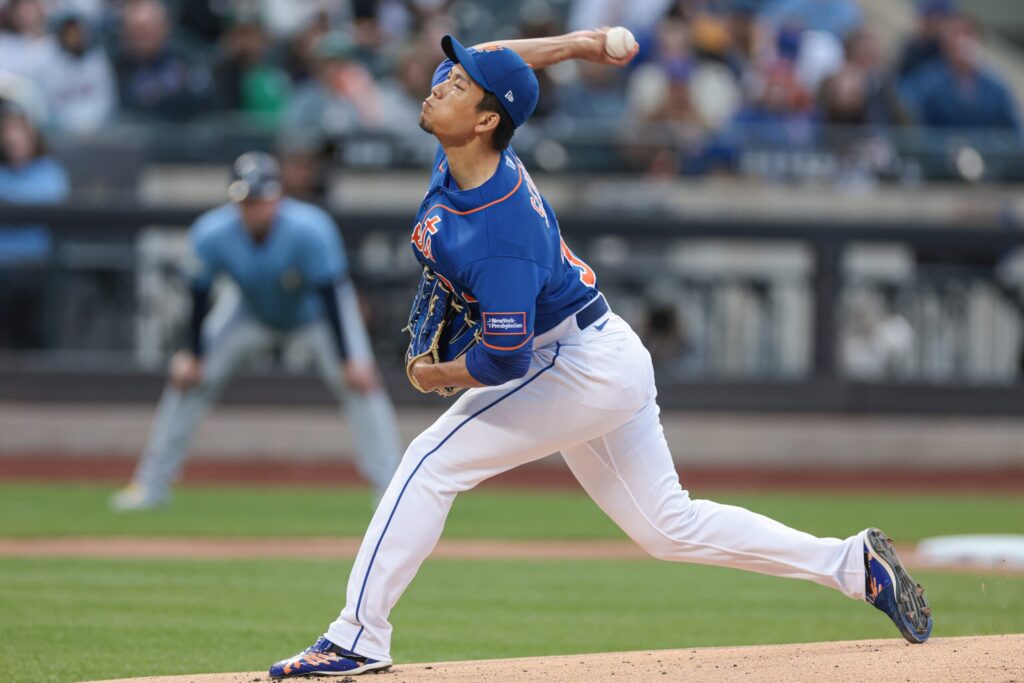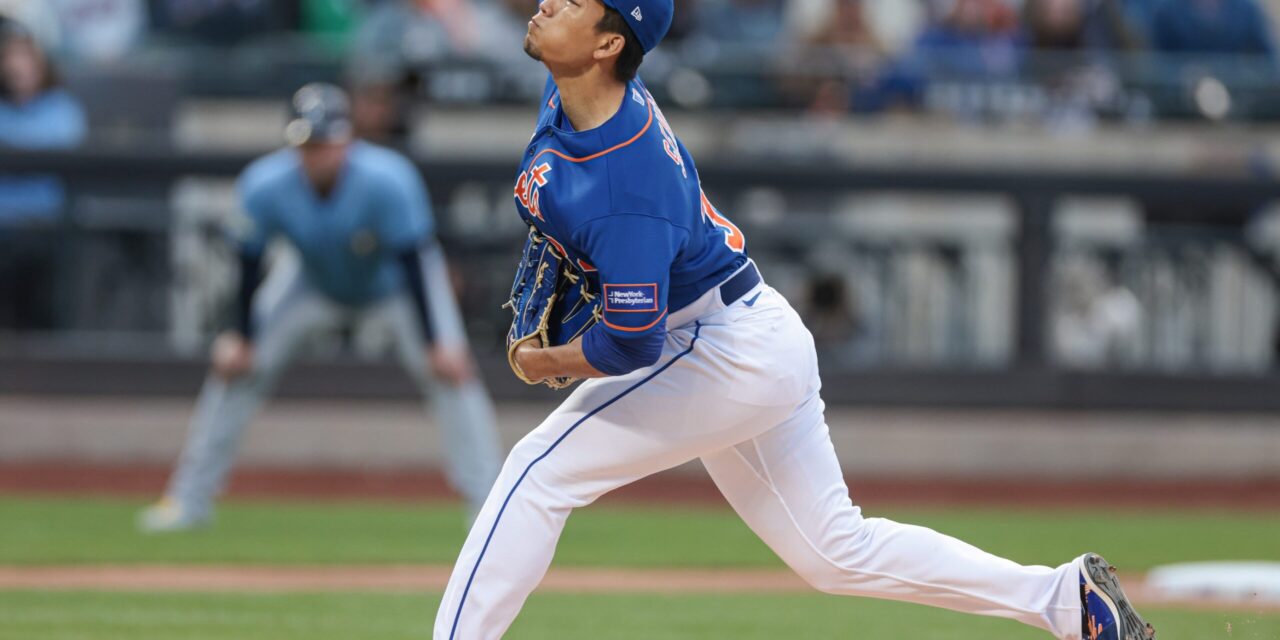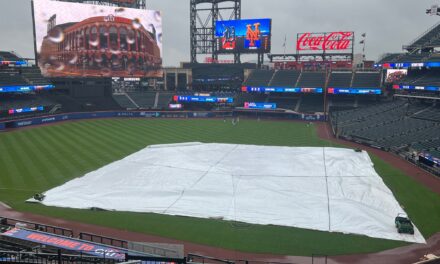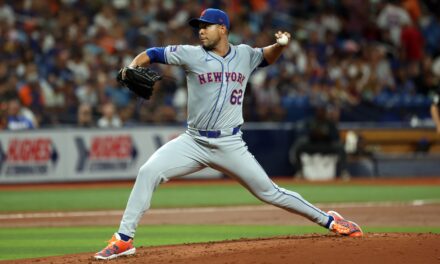Kodai Senga was not at his sharpest on Friday night. The right-hander issued four walks in six innings and only threw 57 of his 101 pitches for strikes. Still, Senga persevered, holding the potent Twins lineup to just two runs, though he didn’t get a decision in the Mets’ 5-2 loss.

Kodai Senga. Vincent Carchietta-USA TODAY Sports
Senga immediately found trouble in the first inning, issuing a one-out walk to Jorge Polanco. Royce Lewis banged the first pitch he saw into left field for a double, bringing home Polanco with the first run of the game. Senga struck out Max Kepler on a forkball but missed badly on consecutive pitches to Carlos Correa for the second walk of the inning. Senga escaped damage though, getting Alex Kirilloff to pop out. All told, Senga needed 28 pitches to get through the inning.
Senga got the first two outs quickly in the second inning, getting Christian Vázquez to ground out to Ronny Mauricio and ringing up Matt Wallner on a fastball. Willi Castro worked a full count with two away before getting a free pass on a forkball in the dirt. Edouard Julien grounded out to Mauricio to end the frame. In the third inning, Senga got a couple of loud outs in the third inning, including a 401-foot fly ball from Royce Lewis that was hit 104.9 miles per hour, but managed his first clean inning of the night.
After the Mets handed Senga a lead in the fourth inning, Correa led off the bottom of the frame with a monstrous home run that was struck 114.2 MPH and 439 feet, tying the game. Kirilloff followed with a single, but Senga was helped out when Tim Locastro laid out to snag Vázquez’s line drive for the first out of the inning. Senga was able to get out of the inning without further damage, getting Castro to fish at a forkball out of the zone to end the inning.
Senga got into trouble again in the fifth inning, walking Julien to start the inning and Polanco followed with a single through the right side of the infield. The righty found his way out of the jam though, getting Lewis to hit into a double play on a 3-2 pitch, and getting a groundout from Max Kepler. Senga followed that with his best inning of the night, striking out Correa and Kirilloff on fastballs in a 1-2-3 sixth inning.
Kodai Senga's 4th and 5th Ks.
Impressive outing from Senga, who really didn't have his best stuff tonight but battled. pic.twitter.com/cpNjwuHNPL
— Rob Friedman (@PitchingNinja) September 9, 2023
Senga’s fastball velocity was down on the night, averaging 94.6 MPH compared to his season average of 95.7. He registered just eight whiffs in the game, and his CSW% (called strike plus whiff rate) was 15%. Hitters only offered at five forkballs in the game, but they whiffed on three of them.
“Just because I don’t feel good or I’m not feeling my best doesn’t mean I just fold and give up the game,” Senga said through his interpreter after the game. “I’m given four or five days to prepare for this game. I think it’s my job to stay out there and make the game winnable. I take pride in that.”
After Friday’s outing, Senga’s ERA is down to 3.07 on the season. He ranks third in the league in that category, trailing Blake Snell (2.52) and Justin Steele (2.55). The 30-year-old has 181 strikeouts, which sits tied for seventh in the NL – he is ahead of Steele by a considerable margin, while Snell (207) and another Cy Young contender Zac Gallen (195) rank ahead of him. Opponents have a weak .209 batting average against Senga, which is the fifth-lowest mark in the NL, trailing Snell (.192), Corbin Burnes (.206), Freddy Peralta (.208), and Spencer Strider (.208). Senga’s xERA of 3.62 is actually better than Snell’s 3.95 and Gallen’s 4.14, though Steele owns a 3.39 mark.
Senga may not necessarily be a front-runner for the Cy Young, but he’s had a year that at least warrants some consideration for a top-five finish in the race. Even on a day when he didn’t have his best stuff, he gave the Mets a solid outing that kept the team in the game. Senga’s next start is slated for Wednesday night against the Diamondbacks.
















